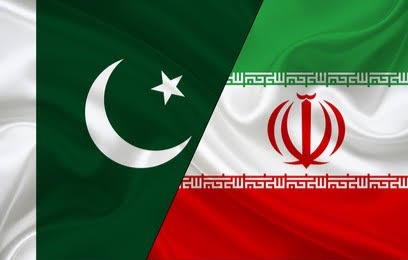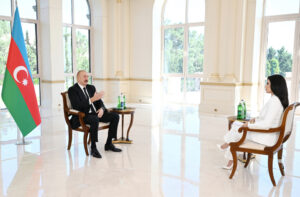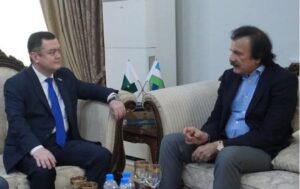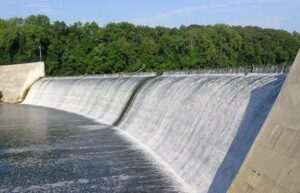The Dynamics of Pakistan and Iran Relations

Iran and Pakistan have a complex and dynamic relationship that is marked by a long history of respect and collaboration. The relationship between these two adjacent nations, which has its roots in common cultural and religious heritage, has developed throughout time as a result of a combination of diplomatic, commercial, and geopolitical interactions. Both countries have continuously demonstrated a commitment to promoting stability and peace in the area, cooperating on a number of fronts to tackle shared problems and grasp economic prospects. Pakistan and Iran’s cooperative efforts are expected to significantly impact regional harmony and prosperity as they continue to deepen their connections.
Iran and Pakistan, two of the Middle East’s and South Asia’s closest neighbors, have a long history of friendship. Following Pakistan’s independence in 1947, the two nations have maintained a contemporary relationship characterized by a blend of cooperation and intricacy. Their bilateral ties have been impacted by historical, geographical, economic, and religious challenges. The dynamics between Pakistan and Iran are examined in this article, which also highlights the important variables that have shaped their relationship throughout time. Recently, there has been both competition and collaboration in the relationship.
The encouraging collaboration between Pakistan and Iran is that both countries have security concerns. Since both countries are located in complicated regions, they have a stake in the fight against terrorism and extremism. They have worked together on several projects, including initiatives to promote regional stability as well as business, energy, and infrastructure.
The two countries have worked together on many subjects, as they both have a stake in promoting stability in the area, such as the peace process in Afghanistan and the war against terrorism. Furthermore, the necessity of Pakistan and Iran’s collaboration for maintaining regional security is becoming more widely acknowledged. Iran and Pakistan share comparable concerns. More intelligence sharing and coordination between the two countries is now required to address these common security issues. In addition, as geopolitical tensions in the Middle East and South Asia endure, Pakistan and Iran attempt to address regional concerns to preserve peace and avoid broader crises.
Military Relations between Pakistan and Iran
Both countries have collaborated militarily throughout the years in several ways, shaped by common goals and the dynamics of regional security.
Pakistan and Iran have largely collaborated militarily in the field of border security. In an effort to improve their military prowess, Pakistan and Iran have also looked into defense technology transfer and training initiatives. Their continued collaboration demonstrates their shared dedication to maintaining regional security and peace while negotiating the intricacies of their geopolitical surroundings. The two neighbors’ relationship has been shaped by bilateral security concerns and strategic goals. Pakistan and Iran is also dedicated to counterterrorism and security cooperation. The Pakistani and Iranian navy often conduct cooperative drills in the Arabian Sea. Iran and Pakistan have agreed to expand defense cooperation and jointly build military gear.
Pakistan and Iran Cooperation in the Defense Sector
Pakistan and Iran both attempted to strengthen their defenses through their defense sectors. There have been instances of technology transfer and collaboration in the design and production of military systems and equipment. Due to their proximity to the Arabian Sea, Pakistan, and Iran share a similar interest in preserving maritime security and safeguarding regional commercial channels. They participated in naval drills to strengthen maritime cooperation and get ready for future security issues. Pakistan and Iran have expressed worries about regional security, namely over the situation in Afghanistan and the Middle East. Their military cooperation has relied heavily on their ability to coordinate and communicate on issues concerning regional security.
General Syed Asim Munir, the Chief of Army Staff of Pakistan, recently paid a visit to Iran in July 2023. During his tour, he reaffirmed the two countries’ commitment to strengthening their bilateral cooperation in the areas of military education, defense, and security.
Pakistan and Iran Economic Relations
Strong international alliances between countries are mostly the result of economic cooperation. Pakistan and Iran have a strong economic relationship due to their shared history and geographic closeness. As both nations strive to realize their enormous economic potential, it is crucial to seek out opportunities for collaboration and mutual benefit. Energy commerce is the foundation of commercial relations between Iran and Pakistan. Iran is the greatest choice for Pakistan’s energy needs because of its large deposits of gas and oil. By delivering natural gas to Pakistan, the Iran-Pakistan gas pipeline project seeks to improve the nation’s energy security. International sanctions against Iran have made the project’s implementation more difficult.
To increase trade potential, the two parties have recently decided to engage in barter trading for some items, such as gas and petroleum. The Border Sustenance Markets Project was launched by Prime Minister Shehbaz Sharif on May 18, 2023, and Iranian President Syed Ebrahim Raisi instilled hope in the people of the country and the localities for prospering businesses and higher incomes.
Iran bought commodities worth $155 million from Pakistan in the aforementioned year, $134 million higher than the number for 2022.Iran’s non-oil exports to Pakistan climbed by 18% during the preceding Iranian calendar year (ending March 20, 2023).Pakistan was Iran’s fifth largest export market in the previous Iranian year, purchasing $1.488 billion in non-oil exports from Iran. Iran purchased non-oil items worth $842 million from Pakistan last year, a 170 percent increase from the previous year. The interweaving of Iran and Pakistan’s economic, security, and transit links has expanded their relationship beyond the neighborhood, transforming them into strategic partners with shared regional objectives. Having almost 900 km of shared border can lead to deeper and more cooperative relations between the two nations in areas such as transit corridors and bilateral trade.
As regional and global dynamics change, both countries’ foreign policy strategies must adapt to protect their interests and foster cooperation. Establishing a solid and advantageous partnership will rely on controlling geopolitical complexity, strengthening economic ties, and boosting regional security by working together to combat terrorism. Furthermore, fostering intercultural communication and interpersonal relationships will promote mutual understanding between Pakistan and Iran, paving the way for a more robust and productive partnership in the face of an ever-changing external environment.
Iran and Pakistan’s economic, security, and transportation links have intertwined, transforming them into strategic partners with shared regional goals. With almost 900 km of shared border, the two nations may achieve greater collaboration in sectors such as transit lanes and bilateral commerce. Iran and Pakistan signed a Memorandum of Understanding (MOU) in mid-January 2023 to improve bilateral commercial relations. The MOU vowed to share commercial information, encourage each other’s private sectors, and establish circumstances for trade delegations to visit the other nation.
The signing ceremony demonstrated the two sides’ willingness to reduce barriers to bilateral commerce and lay the groundwork for businesses to expand collaboration.
Visit of the President of the Islamic Republic of Iran
April 21, 2024
Iranian President Concluded a Successful Official Visit to Pakistan, Enhancing Bilateral Relations, Islamabad, Pakistan .The President of the Islamic Republic of Iran, His Excellency Dr. Syed Ebrahim Raisi, concluded a landmark three day official visit to Pakistan, marking a significant milestone in the longstanding and deeply rooted friendship between the two nations. President Raisi, accompanied by esteemed members of his delegation including the Foreign Minister and prominent officials, embarked on this historic journey from April 22 to April 24, 2024. This momentous occasion notably marks the first visit by any Head of State to Pakistan after the general elections held in February 2024. Throughout his visit, President Raisi engaged in high level discussions and successful exchanges with esteemed dignitaries of Pakistan, reflecting the shared commitment of both nations to bolstering multifaceted cooperation across various sectors.
In Islamabad, the capital city, President Raisi was warmly received by Prime Minister Shehbaz Sharif, President Asif Ali Zardari, and other dignitaries. Substantial deliberations took place, underlining the collective resolve to elevate bilateral trade to $10 billion within the next five years, a testament to the unwavering dedication to fostering economic prosperity and mutual development. Furthermore, President Raisi’s visit to Lahore and Karachi underscored the importance of enhancing cultural ties and people to people contacts, essential elements in strengthening the rich tapestry of Pakistan and Iran relations. In Lahore, President Raisi paid homage to the revered Allama Iqbal at his mausoleum, highlighting the profound affinity between the peoples of Iran and Pakistan. In Karachi, discussions centered on exploring mutually beneficial economic opportunities, with President Raisi expressing Tehran’s readiness to share expertise in industry, science, and technology. Such collaborative endeavors are poised to surmount trade barriers, ushering in a new era of economic cooperation and prosperity for both nations. The visit also provided an invaluable platform for dialogue on regional and global developments, with a particular focus on combating the wave of terrorism, a common threat that necessitates concerted efforts and solidarity. In light of the visit’s significance, President Raisi’s delegation included distinguished members of Iran’s cabinet and a prominent business delegation, reflecting the shared commitment to advancing bilateral ties and exploring new avenues of cooperation.
As the curtains draw on President Raisi’s historic visit, both Pakistan and Iran stand poised to embark on a new chapter of friendship and collaboration, fortified by shared values, cultural affinity, and mutual respect.
Joint Statement between the Islamic Republic of Pakistan and the Islamic Republic of Iran at the Culmination of the Visit by the President of Iran
The President of the Islamic Republic of Iran, Dr. Syed Ebrahim Raisi, visited Pakistan from 22-24 April 2024, accompanied by a high-level delegation including the Foreign Minister of Iran, H.E. Amir Abdollahian, and other cabinet and senior officials. During their visit, the two sides reviewed the entire spectrum of Pakistan and Iran bilateral relations and exchanged views on regional and global issues of mutual concern. Several Memorandum of Understanding (MoU) agreements were signed during the visit.
Both sides agreed to enhance mutual interaction through regular exchange of high-level visits to strengthen fraternal relations. They highlighted the historical, cultural, religious, and civilizational ties between the two neighboring and Muslim countries and reiterated their commitment to further strengthening these bonds through the promotion of academic, cultural, and tourism activities, as well as by enhancing tourism to historic religious sites in both countries.
Both sides acknowledged that the Pakistan and Iran common border should be the ‘border of peace and friendship’ and reiterated the importance of forging regular cooperation and exchange of views between political, military, and security officials of the two countries to combat threats. They agreed to boost their bilateral trade to USD10 billion over the next five years and underscored the imperative of a long-term durable economic partnership and collaborative regional economic and connectivity model, particularly for socio-economic development.
To further strengthen bilateral economic cooperation, both sides agreed to expeditiously finalize the Free Trade Agreement (FTA), hold the next sessions of Annual Bilateral Political Consultations (BPC) and Joint Business Trade Committee (JBTC) and the 22nd round of the negotiations of the Joint Economic Commission (JEC). They also agreed to facilitate a regular exchange of economic and technical experts and delegations from Chambers of Commerce from both countries to intensify economic cooperation.
There was consensus to fully operationalize barter trade mechanisms between the two sides to facilitate economic and commercial activity, particularly under ongoing collaborative endeavors, such as border sustenance markets, which would contribute towards the improvement of the economic situation of residents and further constitute a step towards enhancing border security.
Both parties stressed the importance of harnessing their respective geographic locations to promote connectivity between the two countries as well as with the broader region. They noted with satisfaction the progress made in the regular shipment of goods under the TIR Convention and agreed to fully operationalize the Convention to further promote efficient, speedy, and barrier-free trade between Pakistan and Iran.
Both parties emphasized the significance of peaceful conflict resolution via communication and diplomacy to identify mutually acceptable solutions to shared difficulties, taking into account changes at the regional and international levels. They also emphasized the necessity of resolving the Kashmir dispute amicably and by international law as well as the wishes of the local populace.
The Shanghai Cooperation Organization (SCO) was a crucial platform for regional growth and security, offering chances to unleash the SCO region’s potential in areas such as connectivity, youth, commerce, transit, and economy. Both sides agreed that the ECO region held great potential for the growth of member countries’ economies while emphasizing the significance of regional cooperation for economic development.
Both states reiterated their dedication to seeing Afghanistan grow into a sovereign, independent, peaceful, and unified nation free from terrorist threats and narcotics trafficking. They underlined their determination to strengthen cooperation on counterterrorism and security and forge a unified front against terrorism.
Both parties condemned the rise in Islamophobia and the destruction of holy icons, including the Quran. They emphasized that religious hate should not be tolerated if it incites enmity, discrimination, or violence. They applauded the UN General Assembly’s adoption of Resolution 78/264, “Measures to Combat Islamophobia,” and demanded the appointment of a UN Special Envoy to address Islamophobia.
Both parties emphasized international appreciation for the variety of social, legal, and governance systems, emphasizing cooperation, impartiality, non-selectivity, impartiality, and universality in constructive international dialogue and the promotion and defense of human rights. They also declared their strong opposition to any form of meddling in a nation’s internal affairs.
Both parties reaffirmed that every country has a distinct history, culture, and set of national characteristics, as well as a range of social structures and degrees of social and economic development. The protection of human rights must align with commitments made under international human rights law.
Both states welcomed all forms of cooperation between the two nations in multilateral forums, such as the Asia Cooperation Dialogue (ACD), the Conference of Parliament Speakers of Six Regional Countries, the Meeting of the Security Council Secretaries of the Shanghai Cooperation Organization Member States, the United Nations (UN), the Economic Cooperation Organization (ECO), the Shanghai Cooperation Organization (SCO), the Organization of Islamic Cooperation (OIC), and the D-8 Organization for Economic Cooperation. They also expressed support for initiating free trade discussions within the ECO.
DEMISE OF IRANIAN PRESIDENT EBRAHIM RAISI
On May 19, 2024, Iranian President Ebrahim Raisi and Foreign Minister Hossein Amir Abdollahian perished in a catastrophic helicopter crash. The chopper had a “hard landing” because of the bad weather when it crashed in the East Azerbaijan province of Iran.
Pakistan has mourned the passing of Iranian President Ebrahim Raisi and offered its sincere condolences. Pakistan has shown its respect for the Iranian people by lowering its national flag and expressing its condolences and support during this time of grief. The authorities of Pakistan have emphasized the importance of the relationship between the two nations and reaffirmed their dedication to the agreements reached during President Raisi’s most recent visit to the country.
Pakistan President Asif Ali Zardari expressed great shock and sadness on Monday following the terrible death of Iranian President Ebrahim Raisi in a helicopter accident, according to the president’s office. The Pakistani president sent his profound sympathies to the families of the Iranian president, foreign minister, and those killed in the tragedy, according to a statement from his office.
Pakistan proclaimed national mourning on Monday after South Asian leaders expressed their condolences for the deaths of Iranian President Ebrahim Raisi and other top government officials in a helicopter accident.
Shehbaz Sharif, the prime minister of Pakistan, sent the government and the people of Pakistan his “deepest” sympathies on Raisi’s passing.
Acting President Syed Yousuf Raza Gillani expresses condolences to Iran’s Ambassador, Reza Amiri Moghadam, on the tragic death of Iran’s President, Dr. Seyyed Ebrahim Raisi, at the Embassy of Iran. During his visit to the Iranian Embassy, Acting President Syed Yousuf Raza Gillani expressed condolences in the visitor’s book for the late President of Iran, Dr. Seyyed Ebrahim Raisi.
Zaildar Ahsan Shah paid a recent visit to the Iranian Embassy to express his condolences following the President’s death. During this time of national sadness, he paid a meaningful visit and expressed compassion and solidarity. Regarding the tragedy, Zaildar Ahsan Shah conveyed his deep sorrow for Raisi’s and Amir-Abdollahian’s deaths. His words reflected both personal sorrow and contemplation about the political fallout from the simultaneous deaths of two powerful figures.
The people and government of Pakistan have emphasized the close connection and links that exist between the two countries. Pakistani authorities made it clear in their remarks that the current collaboration and engagement between Iran and Pakistan will not be impacted by the sad passing of President Ebrahim Raisi. The lowering of the flag and this act of sadness represent the strong bond and mutual respect between the two adjacent nations.
The ambassador also declared that the next presidential elections will take place within the next fifty days, having previously been scheduled. This quick scheduling is a component of Iran’s plan to guarantee a seamless and smooth transfer of authority.
Conclusion
The dynamics of Pakistan and Iran’s relationship demonstrate the tremendous possibilities of regional relationships. Despite various hurdles, the relationship between these two countries is based on similar interests and mutual respect. Their beneficial partnership in the fight against terrorism and extremism, along with their successful joint ventures in business, energy, and infrastructure projects, demonstrate their success the vast prospects for constructive engagement. Pakistan and Iran’s commitment to collaborating on vital topics such as the Afghan peace process and counter-terrorism programs not only meets urgent security demands, but also lays the groundwork for long-term regional stability and prosperity. The future of Pakistan-Iran ties is bright and promising. Their capacity to engage in meaningful discourse and build mutual understanding enables them to successfully navigate and overcome geopolitical difficulties.
By concentrating on common goals and exploiting their unique capabilities, Pakistan and Iran can build an even stronger, more collaboration that benefits both countries and considerably improves regional peace and prosperity.


